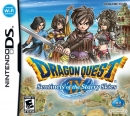The issue when defining speech is how far it extends before you are incurring on the rights of others.
For example, if I own a business I have the right to deny someone from ordering my product on certain grounds. What those grounds are shift based on social norms. You use to be able to deny people business based on race, but today that "freedom" is removed so that others have the "freedom" to not be discriminated against on this basis.
The challenge is often that imaginary "line" is not defined and changes its definition based on culture, generation and even individual. What can be criticized? What can be championed?
Also, there are two forms in which censorship occurs. State authorized and public/market pressure. The former is easy to spot as a law with punishment is passed, but the latter is trickier as runs into majority/minority rights and often leads to partial censorship such as time and place restrictions.
Simply put, freedom of speech or expression is an ongoing experiment which constantly changes due to the desires of the people of a given place or time. We're still finding the balance, and likely will continue to do so for centuries to come.




















